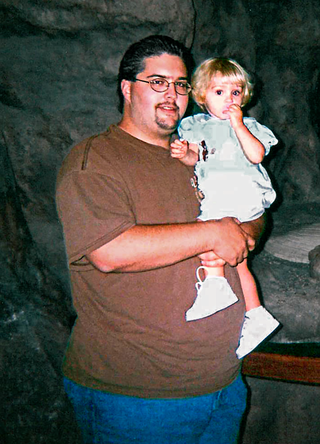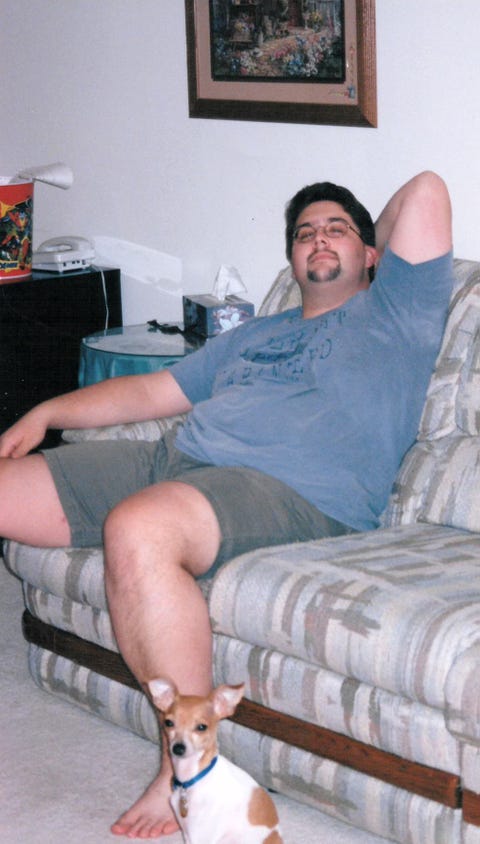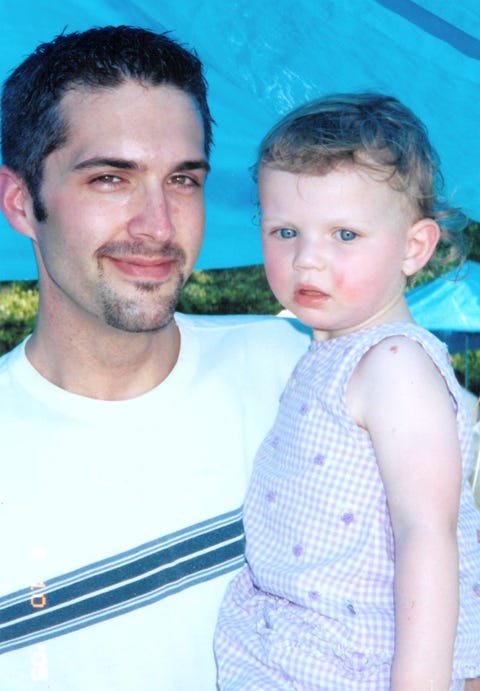
David Lineberry, now 43, has been on a two-decades-long weight loss journey. Entering college, Lineberry was 330 pounds. He managed to lose 100 pounds over the next couple of years, but after he graduated and aged, the weight came back. He would lose and then gain and then lose weight over and over. It took a new strategy for Lineberry to drop over 100 pounds, reach 189, and keep it off. He had to change his old dieting habits.

David Lineberry
Lineberry’s parents were also obese. “They didn’t pass on the best nutrition advice or the most cooperative genes,” he says. Over the first year in college, Lineberry used SlimFast, cut back on unhealthy foods, and dropped over 100 pounds. But he had trouble transitioning off the diet and ended up putting the weight back on. He lost more again in his late twenties, but, again, found transition difficult. He was on the weight loss roller-coaster.
Last year, Lineberry began again. His father had been a diabetic and was in and out of the hospital for seven years. He developed heart disease and gangrene in his feet. The doctors began cutting off toes, Lineberry remembers. “He ended up dying on the operating table.” After Lineberry reached his forties and saw his father’s fate reflected in those his own age, he knew that this time he needed to lose the weight for good.

David Lineberry
This time, Lineberry took a different approach, focusing on making his own food rather than relying on a meal system. Though he’d been told not to count calories or weigh himself, Lineberry began keeping a food journal and doing just that.
“I’ve found that when you do something positive, like cut out drinking, it gives you more energy to keep going with the diet,” he says. He told himself no more processed food, and focused his feast on vegetables, grilled chicken, and grilled shrimp.
“We’re in this for the long haul, and we need to accept that mentality.”
“’Diet’ has become synonymous with a temporary thing we do,” explains Lineberry. “But we’re in this for the long haul, and we need to accept that mentality.” Accepting that mentality has been Lineberry’s big breakthrough. “You probably didn’t gain all your extra weight in a week’s time, so don’t expect it to come off in a week.”
Lineberry says substitution helped him curb urges. If he wanted pizza, he searched for ways to make the pizza himself—and make it healthy. He celebrated success with the occasional cheat meal, but he stayed persistent. He’d gained weight over years, and he knew he would need to devote years to drop and keep it off.

David Lineberry
For exercise, Lineberry took to the gym five days a week—30 minutes cardio, 30 minutes strength—shifting from arms to chest to legs during the week.
“Once you get into a habit, it feels weird to skip,” Lineberry says. “I feel guilty now when I skip a workout day. The trick has always been just getting into the habit in the first place.”
The trick for Lineberry was also mixing up exercises to keep from getting bored. He’d use machines, free weights, and even aerobic exercise videos.

In October, Lineberry dropped below 190, his target weight.
Since then, he’s stuck to his routine: eating veggies and chicken and getting to the gym five days a week.
“Losing weight really affects every aspect of your life,” he says. “Your love life gets better because you’re in a better mood and you find each other more attractive. You’re better to be around because you’re not moody or grumpy but positive. You work harder because you have more energy. Every day is a better day.”
Source: Read Full Article